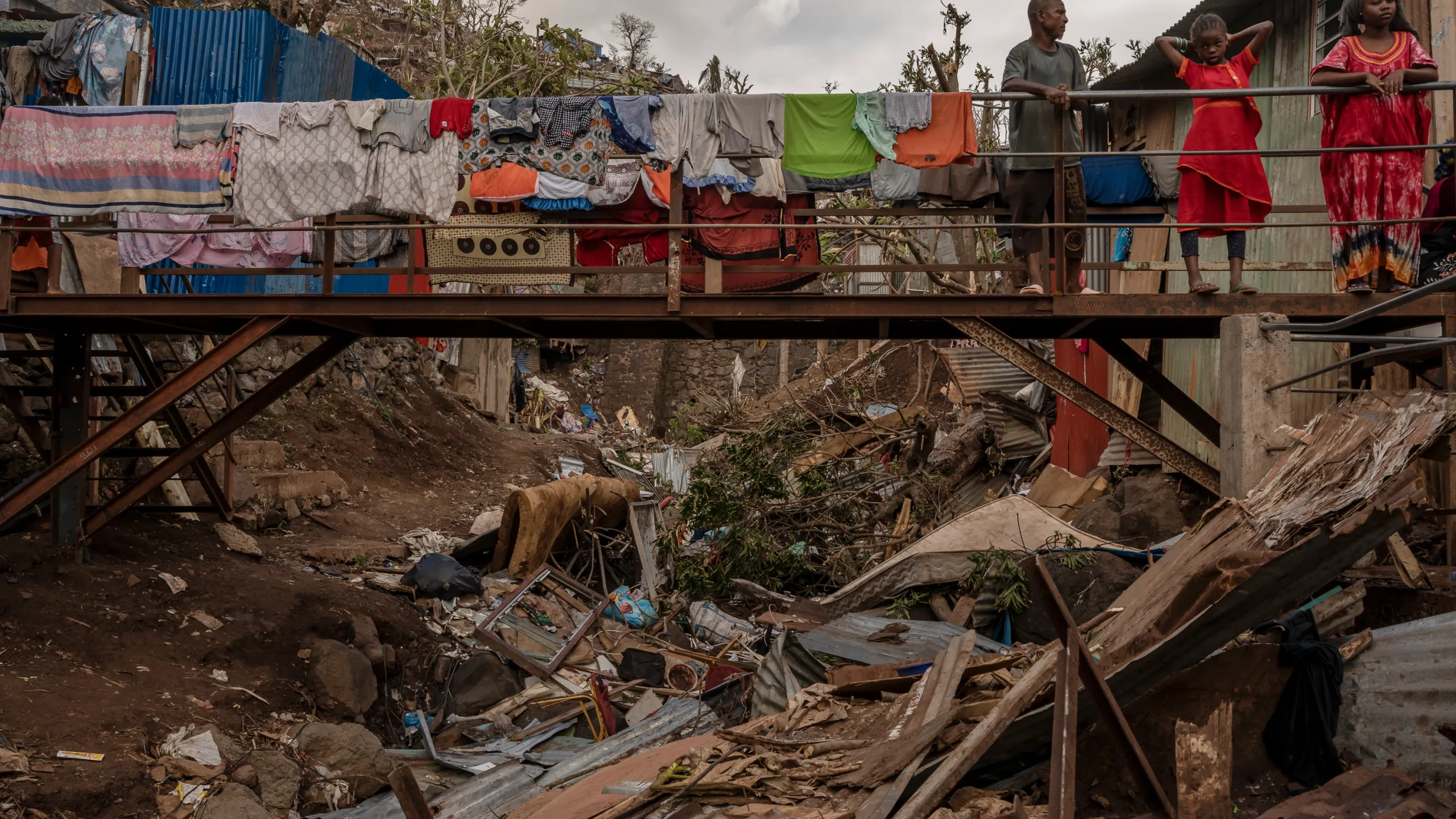French President Emmanuel Macron faced significant backlash during his visit to Mayotte, a French overseas territory devastated by Cyclone Chido. The storm caused catastrophic destruction, with winds exceeding 220 km/h (136 mph), destroying neighborhoods, infrastructure, and essential services. Macron’s attempt to engage with locals turned contentious when he remarked that they should feel “happy to be in France,” a comment widely perceived as dismissive of their plight. The visit, meant to express solidarity, instead exposed deep frustrations among residents, who are struggling without water, electricity, or adequate government support.
Cyclone Chido, the strongest storm to hit Mayotte in over 90 years, has laid bare the island’s vulnerability to extreme weather events exacerbated by climate change. Opposition politicians criticized the French government for failing to invest in disaster preparedness and climate resilience in Mayotte. Many locals confronted Macron directly, expressing anger over the slow and insufficient response. Relief efforts have been hindered by the scale of destruction, and residents feel abandoned as they try to rebuild their lives amidst the chaos.

Backlash Erupts as Macron Faces Criticism During Cyclone Chido Recovery Visit to Mayotte
The cyclone hit Mayotte’s informal settlements the hardest, where many undocumented migrants live in precarious conditions. These communities, which house a significant portion of the population, suffered extensive damage, leaving thousands homeless and in urgent need of assistance. The archipelago, already grappling with high poverty rates and a migration crisis, has seen its longstanding issues magnified by the disaster. Critics argue that systemic neglect by the French government has left Mayotte ill-prepared for such catastrophes.
Mayotte’s socio-economic challenges, including a poverty rate five times higher than mainland France, have compounded the disaster’s impact. Relief supplies are being brought in from Reunion Island, but recovery efforts remain slow. The death toll, currently at 31, is expected to rise as search and rescue operations continue. Injuries have exceeded 1,300, and authorities are racing against time to provide aid and secure the safety of survivors. Macron announced additional support and declared a day of national mourning, but locals remain skeptical about Paris’s long-term commitment to their recovery.
The tragedy in Mayotte highlights the urgent need for France to address systemic inequalities and invest in climate adaptation measures in its overseas territories. Macron’s visit underscored the deep disconnect between the government and the residents of Mayotte, who feel overlooked and underserved. As the territory works to recover from Cyclone Chido’s devastation, it faces mounting challenges that require sustained attention and resources. The disaster serves as a wake-up call for stronger climate resilience and more equitable development across all parts of France.
